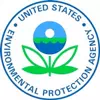Utilities
This section of HERC provides an overview of utilities and related equipment commonly found at assisted living/nursing home communities that are regulated by EPA. Numerous links are provided to further investigate federal and state regulations and to locate guidance documents and points of contact.
Boilers
Facilities with boilers rated above 10 MMBtu/hr (2.9 megawatts) are covered by federal air pollution regulations termed New Source Performance Standards (NSPS). Smaller units are not covered by federal regulations, but state rules may apply to them. If you have a regulated boiler, you need a permit and must perform recordkeeping and reporting. For more information, see:
-
HERC's Boiler section, (general information),
-
Combustion Portal Boiler section (overview of regulations).
Generators
Generators fall under the category of stationary reciprocating internal combustion engines (RICE). These units are used for power generation, including emergency generators, and are regulated under Federal air pollution regulations. Your generator may also be covered by state and local regulations that may involve additional requirements or more stringent standards than the federal regulations. For information pertaining to RICE rules, see:
-
Combustion Portal (overview), and
-
EPA's RICE page (detailed regulatory information).
Refrigeration and Heating Ventilation and Air Conditioning (HVAC) Systems
EPA air pollution regulations affect air conditioning and refrigeration systems that contain ozone depleting substances (ODSs). These regulations apply to refrigerant fluids found in both vehicle and building cooling systems. The rules require that technicians become certified and employ specific practices to prevent loss of coolants. Also, there are recordkeeping rules that apply. For more information, see:
-
HERC's HVAC section (general information),
-
Refrigeration and HVAC Systems (overview of regulations), and
-
HVAC System Design and Operation (EPA guidance).
Storage Tanks
Heating fuel storage tanks are regulated differently, depending on whether they are above ground or below ground tanks.
-
Underground storage tank (UST) regulations are aimed at preventing contamination of groundwater. The regulations are designed to prevent releases by closely monitoring petroleum storage and by imposing deadlines for removal of older USTs before they fail.
-
Aboveground storage tanks (ASTs) pose a more immediate threat to surface water bodies such as streams and rivers. For ASTs, the regulations focus on preventing, controlling and cleaning up accidental spills.
For more information, see:
-
Storage Tanks (overview of regulations),
-
Storage Tanks Resource Locator (state-specific rules),
-
Underground Storage Tanks (EPA rules), and
-
Aboveground Storage Tanks (EPA rules).




